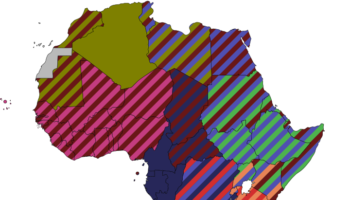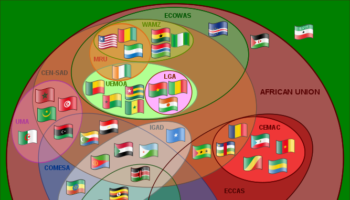Child marriage is a marriage or similar union, formal or informal, between an adult and a child or youth under a certain age, typically age eighteen.Child marriage violates the rights of children and has widespread and long term consequences for child brides and grooms. It affects both boys and girls, but it is more common among girls. The legally prescribed marriageable age in some jurisdictions is below 18 years, especially in the case of girls. Even where the age is set at 18 years, cultural traditions may take priority over legislative law and many jurisdictions permit earlier marriage with parental consent or in special circumstances, such as teenage pregnancy. Comprehensive sex education can help to prevent child marriage. Child marriage is related to child betrothal, and it includes civil cohabitation and court approved early marriages after teenage pregnancy.In many cases, only one marriage-partner is a child, usually the female. Causes of child marriages include poverty, bride price, dowry, cultural traditions, laws that allow child marriages, religious and social pressures, regional customs, fear of remaining unmarried, illiteracy, and perceived inability of women to work for money.
According to UNICEF, Africa has the highest incidence rates of child marriage, with over 70% of girls marrying under the age of eighteen in three nations. Girls in West and Central Africa have the highest risk of marrying in childhood. Niger has one of the highest rates of early marriage in sub-Saharan Africa. Among Nigerian women between the ages of twenty and twenty-four, 76% reported marrying before the age of eighteen and 28% reported marrying before the age of fifteen. This UNICEF report is based on data that is derived from a small sample survey between 1995 and 2004, and the current rate is unknown given lack of infrastructure and in some cases, regional violence.
African countries have enacted marriageable age laws to limit marriage to a minimum age of 16 to 18, depending on jurisdiction. In Ethiopia, Chad and Niger, the legal marriage age is 15, but local customs and religious courts have the power to allow marriages below 12 years of age. Child marriages of girls in West Africa and Northeast Africa are widespread. Additionally, poverty, religion, tradition, and conflict make the rate of child marriage in Sub-Saharan Africa very high in some regions.
In many tribal systems a man pays a bride price to the girl’s family in order to marry her (comparable to the customs of dowry and dower). In many parts of Africa, this payment, in cash, cattle, or other valuables, decreases as a girl gets older. Even before a girl reaches puberty, it is common for a married girl to leave her parents to be with her husband. Many marriages are related to poverty, with parents needing the bride price of a daughter to feed, clothe, educate, and house the rest of the family. In Mali, the female:male ratio of marriage before age 18 is 72:1; in Kenya, 21:1.
The various reports indicate that in many Sub-Saharan countries, there is a high incidence of marriage among girls younger than 15. Many governments have tended to overlook the particular problems resulting from child marriage, including obstetric fistulae, premature births, stillbirth, sexually transmitted diseases (including cervical cancer), and malaria.In parts of Ethiopia and Nigeria many girls are married before the age of 15, some as young as 7.[110] In parts of Mali 39% of girls are married before the age of 15. In Niger and Chad, over 70% of girls are married before the age of 18.
As of 2006, 15–20% of school dropouts in Nigeria were the result of child marriage. In 2013, Nigeria attempted to change Section 29, subsection 4 of its laws and thereby prohibit child marriages. Christianity and Islam are each practiced by roughly half of its population, and the country continues with personal laws from its British colonial era laws, where child marriages are forbidden for its Christians and allowed for its Muslims. Child marriage is a divisive topic in Nigeria and widely practiced. In northern states, predominantly Muslim, over 50% of the girls marry before the age of 15.
In 2016, during a feast ending the Muslim holy month of Ramadan, the Gambian President Yahya Jammeh announced that child and forced marriages were banned.
In 2015, Malawi passed a law banning child marriage, which raises the minimum age for marriage to 18. This major accomplishment came following years of effort by the Girls Empowerment Network campaign, which ultimately led to tribal and traditional leaders banning the cultural practice of child marriage.
In Morocco, child marriage is a common practice. Over 41,000 marriages every year involve child brides.[123] Before 2003, child marriages did not require a court or state’s approval. In 2003, Morocco passed the family law (Moudawana) that raised minimum age of marriage for girls from 14 to 18, with the exception that underage girls may marry with the permission of the government recognized official/court and girl’s guardian. Over the 10 years preceding 2008, requests for child marriages have been predominantly approved by Morocco’s Ministry for Social Development, and have increased (c. 29% of all marriages). Some child marriages in Morocco are a result of Article 475 of the Moroccan penal code, a law that allows rapists to avoid punishment if they marry their underage victims. Article 475 was amended in January 2014 after much campaigning, and rapists can legally no longer avoid sentencing by marrying their victim.
In South Africa the law provides for respecting the marriage practices of traditional marriages, whereby a person might be married as young as 12 for females and 14 for males. Early marriage is cited as “a barrier to continuing education for girls (and boys)”. This includes absuma (arranged marriages set up between cousins at birth in local Islamic ethnic group), bride kidnapping and elopement decided on by the children.
In 2016, the Tanzanian High Court – in a case filed by the Msichana Initiative, a lobbying group that advocates for girls’ right to education – ruled in favor of protecting girls from the harms of early marriage. It is now illegal for anyone younger than 18 to marry in Tanzania.[131]
In 2019, Mozambique’s national assembly passed a law prohibiting child marriage. This law came after national movements condemning Mozambique’s high rate of child marriage with 50% of girls marrying under the age of 18.
A 2015 Human Rights Watch report stated that in Zimbabwe, one-third of women aged between 20 and 49 years old had married before reaching the age of 18. In January 2016, two women who had been married as children brought a court case requesting a change in the legal age of marriage to the Constitutional Court, with the result that the court declared that 18 is to be the minimum age for a legal marriage for both men and women (previously the legal age had been 16 for women and 18 for men). The law took effect immediately, and was hailed by a number of human rights, women’s rights, medical and legal groups as a landmark ruling for the country.
Unicef stated in 2018 that although the number of child marriages has declined on a worldwide scale, the problem remains most severe in Africa, despite the fact that Ethiopia cut child marriage rates by a third.




